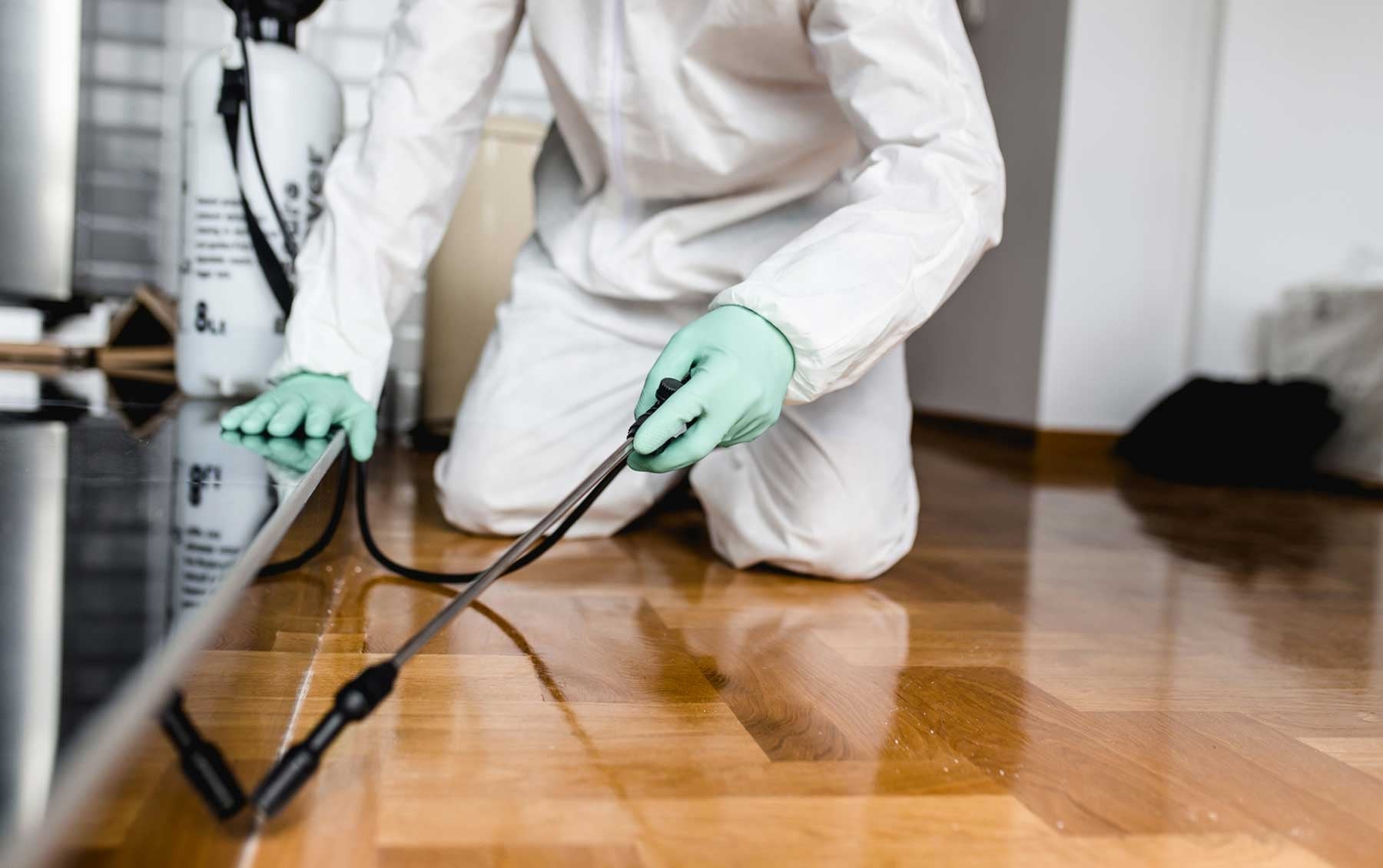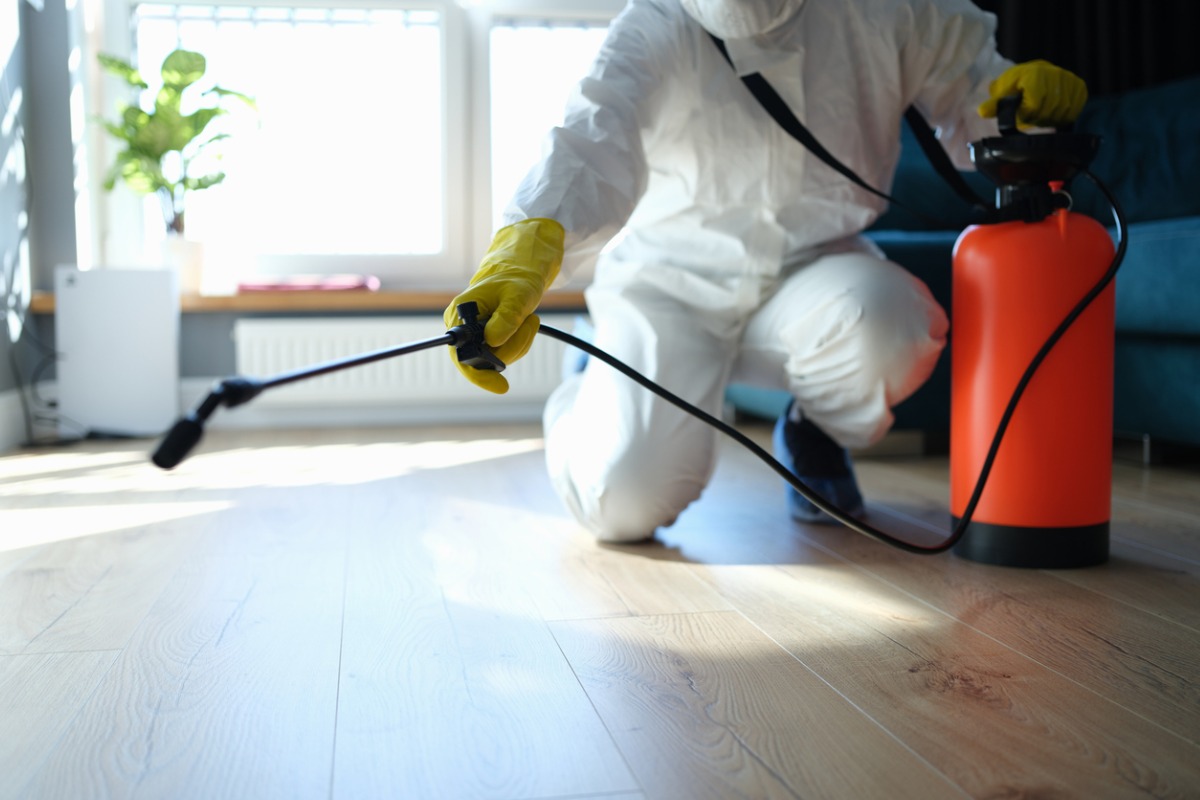Safe and Reliable Parasite Control for Lasting Protection
Reliable bug administration needs a multifaceted technique that balances ecological honesty with the need for efficient pest reductions. The subtleties of these approaches might not be immediately clear, motivating a better assessment of the practices that can lead to lasting bug control outcomes.
Comprehending Pest Control Approaches
Pest control encompasses a range of methods intended at handling and eradicating unwanted pests and rodents that can endanger both health and property. Understanding these techniques is essential for effective bug administration.
The main categories of bug control techniques consist of mechanical, organic, and chemical approaches. Mechanical methods involve physical obstacles and traps to avoid parasite entrance and capture undesirable varieties. As an example, making use of screens on windows or utilizing sticky catches can substantially lower bug populaces without presenting harmful compounds.

Chemical pest control is typically the most identified method, using pesticides to remove insects. These chemicals can be efficient yet should be used with care to prevent damaging impacts on non-target varieties and the setting.
Benefits of Eco-Friendly Solutions
Just how can environment-friendly solutions change pest control methods? The fostering of environmentally friendly insect control approaches offers various benefits, considerably boosting the performance and security of insect administration (exterminator coquitlam). To start with, these solutions use natural components, minimizing the reliance on dangerous chemicals that can pose threats to human health and the setting. This shift not only safeguards animals and families but also decreases the possibility for soil and water contamination.

An additional benefit is the positive influence on regional biodiversity. Environment-friendly remedies are designed to target particular bugs while maintaining beneficial insects and wildlife, promoting a balanced environment. This technique straightens with the expanding customer need for lasting techniques, boosting the reputation of pest control companies.
Integrated Bug Monitoring Approaches
The execution of green remedies normally brings about the fostering of Integrated Bug Monitoring (IPM) methods, which additionally boost bug control efficiency. IPM is an alternative strategy that integrates several strategies to manage pest populations while decreasing ecological effect. This method highlights the use of biological, social, mechanical, and chemical controls, making sure a well balanced and sustainable approach of parasite monitoring.
One basic element of IPM is the comprehensive analysis of parasite activity and ecological problems. By monitoring pest populaces and determining their life process, experts can carry out targeted interventions that interfere with the insect's habitat or lifecycle, minimizing reliance on chemical pesticides. In addition, cultural techniques such as plant rotation and environment manipulation can dramatically reduce pest facility and reproduction.
One more crucial part is making use of organic control agents, such as valuable bugs or microbes, which can naturally subdue pest populaces. When chemical applications are necessary, IPM focuses on using low-risk pesticides and uses them selectively, lessening exposure to non-target organisms and human beings.
Integrating IPM approaches not only boosts insect control performance but also advertises a safer environment, aligning with the growing need for sustainable methods in bug management.
Safe Practices for House Owners
Understanding the relevance of safe methods in bug control can empower rodent elimination property owners to properly manage bug issues while securing their health and the environment. Executing preventive steps and safe approaches is crucial in reducing direct exposure to unsafe chemicals.
Home owners need to initially analyze their setting for problems that draw in insects, such as standing food, clutter, and water waste. Frequently cleaning and sealing entry points can deter parasites from attacking the home. Making use of all-natural deterrents, such as necessary oils or diatomaceous earth, can offer efficient Recommended Site alternatives to chemical pesticides.
When chemical therapies are essential, homeowners should choose items that are particularly labeled as secure for domestic use. It is important to adhere to application guidelines diligently to prevent overexposure. Utilizing targeted treatments in locations where pests are determined, instead than blanket splashing, can considerably lower chemical use.
Last but not least, preserving open interaction with insect control specialists is important. Home owners should ask about the security of items used and demand environment-friendly alternatives whenever feasible. By adopting these secure practices, house owners can create a much healthier living environment while effectively handling parasite issues.

Tips for Long-Term Defense
Establishing a bug management technique that stresses lasting protection can substantially improve the effectiveness of the risk-free techniques previously discussed. To attain this, house owners must implement routine inspections of their residential or commercial property, concentrating on concealed locations such as attic rooms, basements, and crawl areas. Early discovery of parasite task is crucial in avoiding problems from taking hold.
These techniques minimize attractants that draw parasites right into the home. Sealing access points, such as cracks around home windows and doors, can effectively obstruct potential parasite gain access to.
Landscaping find out this here must also be considered; maintaining plants trimmed and keeping a distance in between plants and the home minimizes concealing spots for parasites. Utilizing all-natural deterrents, such as necessary oils or diatomaceous earth, can better dissuade infestations without turning to harsh chemicals.
Finally, working together with a professional bug control service for regular evaluations can supply an extra layer of protection. These professionals can supply tailored recommendations and advanced therapies, making sure that your home remains secured against bugs in the long term.
Final Thought
In verdict, safe and trusted pest control needs a multifaceted method that stresses environmentally friendly approaches and integrated bug management. By implementing natural deterrents, carrying out routine examinations, and maintaining proper sanitation, homeowner can dramatically reduce pest populations while protecting useful bugs and the atmosphere. Partnership with expert bug control solutions boosts the effectiveness of these techniques, guaranteeing tailored services that offer long lasting security and satisfaction against future infestations.
Effective insect administration needs a diverse method that balances ecological integrity with the demand for reliable parasite reductions. The fostering of environment-friendly bug control techniques provides numerous advantages, dramatically improving the efficiency and security of bug administration.The application of environment-friendly services naturally leads to the adoption of Integrated Pest Monitoring (IPM) techniques, which better boost bug control efficiency. exterminator coquitlam. By checking bug populaces and recognizing their life cycles, experts can implement targeted treatments that interfere with the pest's environment or lifecycle, decreasing dependence on chemical pesticides.In conclusion, reliable and risk-free bug control requires a complex strategy that highlights environmentally friendly approaches and integrated parasite administration